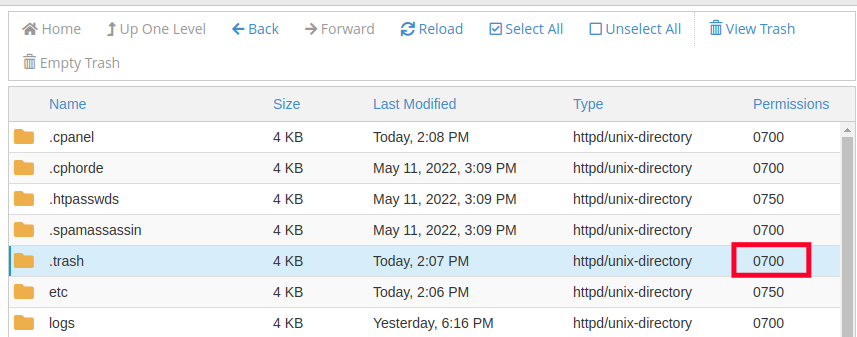cPanel Will Not Let Me Delete Files - FileOp Failure
I keep getting this error when I try to delete files in the cPanel file manager: FileOp Failure: (XID 96sg7u) The system failed to create the file “/home/knowan5/.trash/.trash_restore.lock” (as EUID: 3390, EGID: 3388 3388) because of the following error: Permission denied
How am I supposed to enable this permission?







Hello Garrett,
Thank you for contacting us about a FileOp Failure error when trying to delete files in cPanel.
FileOp Failure - Permission denied
This seems to be caused by a "Permission denied" error because your system was not able to create a hidden trash (/.trash/.trash_restore.lock) folder. First, check your file permissions for the .trash folder to make sure you have full access (you may have to allow your cPanel to view hidden folders). Permissions should be set to 0700 so your cPanel user is the only one that can read, write, or execute the folder.
Default Files Deleted
If you removed all of the default file structures, then it's possible that a required file/folder was removed and can't be created when deleting the file. In this case, we would recommend contacting our live technical support team for further assistance. They have access to your server to add the default files and folders. Once you have the default files back in place the File Manager should operate normally once again.
FileOp Failure - Directory Not Empty
We have also seen people experience a "Directory Not Empty" error when deleting a file. This is often caused by trying to delete a file that contains files that you don't have permission to edit. In this case, you should be able to open the folder and update the permissions of the files then try to delete them again.
If you have any further questions or comments, please let us know.
Kindest Regards,
Arnel C.